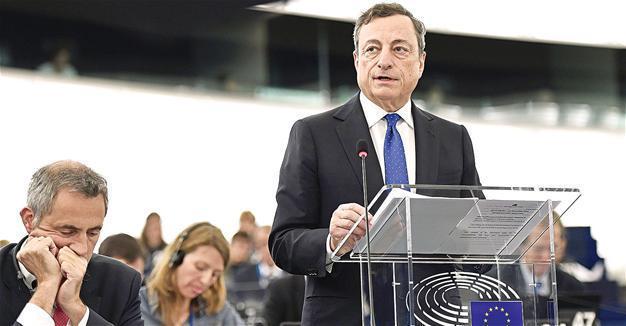Eurozone stability risk on the rise, some sovereign vulnerable
FRANKFURT-Reuters

Financial stability risk is rising in the euro zone and concerns may re-emerge about some countries’ ability to sustain their debt, potentially raising pressure on the bloc’s weakest sovereigns, the European Central Bank said on Nov. 24.
In an unusually downbeat message, the ECB warned that global political shifts, including the new U.S. administration, may trigger sudden asset price volatility and flow reversals, compounding existing vulnerabilities to rising interest rates and yields.
“Higher political uncertainty may lead to more domestically focused, growth-hindering policy agendas,” the ECB said in a regular stability review.
“This, in turn, could delay much-needed fiscal and structural reforms and could in a worst-case scenario reignite pressures on more vulnerable sovereigns,” it added. “In particular, concerns about debt sustainability might re-emerge despite relatively benign financial market conditions.”
The ECB warned that political events in advanced economies, including a long list of elections and plebiscites on both sides of the Atlantic, could trigger big market shifts, leading to financial contagion - a danger given that the euro zone is remains in a vulnerable, low nominal growth environment.
“Risks of further asset price corrections remain high and may be amplified by high correlations between asset classes,” the ECB said.
“Political uncertainty continued to rise not only at the national level given busy electoral calendars in 2017 in major euro area countries, but also at the EU level in the aftermath of the UK referendum.”
Adding to the bloc’s stability risk, robust price increases have been noted in some real estate markets and signs of overvaluation have emerged for residential property in some countries. Furthermore, prime commercial property valuations also appear to be high, the ECB said.
 Financial stability risk is rising in the euro zone and concerns may re-emerge about some countries’ ability to sustain their debt, potentially raising pressure on the bloc’s weakest sovereigns, the European Central Bank said on Nov. 24.
Financial stability risk is rising in the euro zone and concerns may re-emerge about some countries’ ability to sustain their debt, potentially raising pressure on the bloc’s weakest sovereigns, the European Central Bank said on Nov. 24.